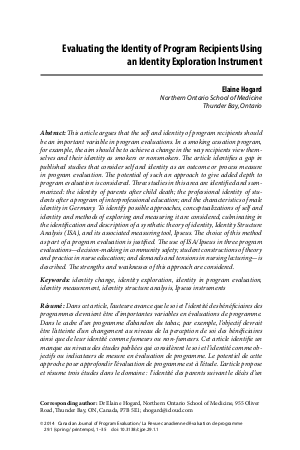
This article argues that the self and identity of program recipients should be an important variable in program evaluations. The article identifies a gap in published studies that consider self and identity as an outcome or process measurein program evaluation. The potential of such an approach to give added depth to program evaluation is considered. Three studies in this area are identified and summarized: the identity of parents after child death; the professional identity of students after a program of interprofessional education; and the characteristics of male identity in Germany.